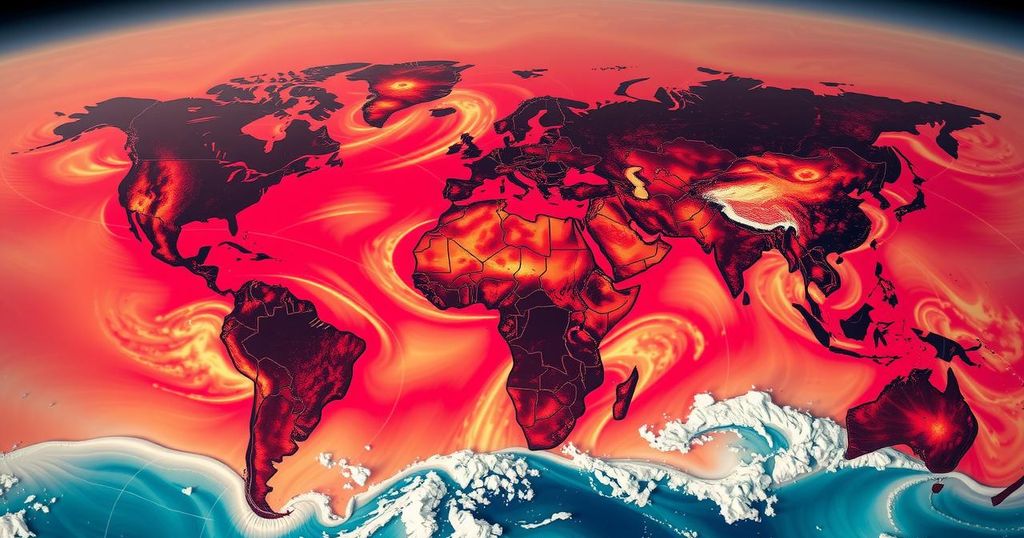2024 has been confirmed as the hottest year on record, with global temperatures averaging 1.46°C above pre-industrial levels. NOAA and NASA data reveal alarming trends, indicating all ten hottest years have occurred in the past decade. Extreme weather events across continents highlight the urgent need for climate action, as leaders are urged to confront the escalating crisis, with António Guterres calling for immediate intervention.
In 2024, the world experienced its hottest year on record, as confirmed by scientists from the United States. This finding underscores the reality of a climate crisis that is inducing unprecedented global temperatures. According to the National Oceanic and Atmospheric Administration (NOAA), the average global temperature was 1.46°C (2.6°F) above the pre-industrial average, marking a 0.1°C increase from the prior record set in 2023. Consequently, all ten of the hottest years recorded since 1850 have occurred within the last decade.
NASA corroborated this data, with scientists noting that the 2024 temperatures were approximately 1.47°C (2.6°F) higher than pre-industrial times. Gavin Schmidt, a senior climate scientist at NASA, stated emphatically, “All the groups agree, regardless of how they put the data together, there’s no question. The long-term trends are very clear.”
The rising global temperatures signal a looming danger, as evidenced by this year’s extreme weather events across the globe, including record heat in the United States, Europe, and Africa. The Arctic region is warming at three times the global average. In Mexico, heatwaves led to howler monkeys falling from trees, and parts of Spain faced catastrophic floods.
The oceans continue to absorb significant amounts of heat, also recording alarming temperature increases. Scientists are exploring the reasons behind this rapid warming, with suggestions that a reduction in shipping pollution and changes in cloud cover may also play a role. Robert Rohde, lead scientist at Berkeley Earth, highlighted that recent temperature records indicate a concerning acceleration in global warming trends, stating, “The abrupt new records set in 2023 and 2024 join other evidence that recent global warming appears to be moving faster than expected.”
While individual years exceeding the 1.5°C threshold do not invalidate the Paris climate agreement, experts warn that failing to curb emissions could lead to dire repercussions. António Guterres, Secretary-General of the United Nations, emphasized the urgency of the situation: “Blazing temperatures in 2024 require trail-blazing climate action in 2025. There’s still time to avoid the worst of climate catastrophe. But leaders must act – now.”
The alarming rise in global temperatures indicates significant challenges presented by climate change. This situation is further compounded by the historical reliance on fossil fuels, which contribute to greenhouse gas emissions. As international climate agreements like the Paris Agreement struggle against increasing temperatures, scientists and policymakers alike are becoming increasingly concerned about the ability to balance economic growth with environmental sustainability. Current scientific consensus marks 2024 as a pivotal year, setting unprecedented temperature records that reveal the immediate need for comprehensive climate action.
The record-setting heat of 2024 serves as a critical reminder of the pressing climate crisis and reflects the urgent need for immediate and profound action. With temperatures soaring beyond pre-industrial levels, the evidence clearly suggests an accelerating trend in global warming. Without prompt and robust measures to reduce greenhouse gas emissions, the world risks breaching crucial climate thresholds that could lead to severe ecological and societal repercussions.
Original Source: www.theguardian.com






